16 May Driving the Douro Valley
The Douro river route: a 200-kilometre journey across northern Portugal to the Spanish border. Picture a wide river snaking through lush valleys lined with grape and olive bushes, the landscape dotted with traditional Port-wine quintas. During the Easter holidays we headed north from the Algarve to spend a couple of days driving the Douro Valley, one of Portugal’s UNESCO-listed wonders.
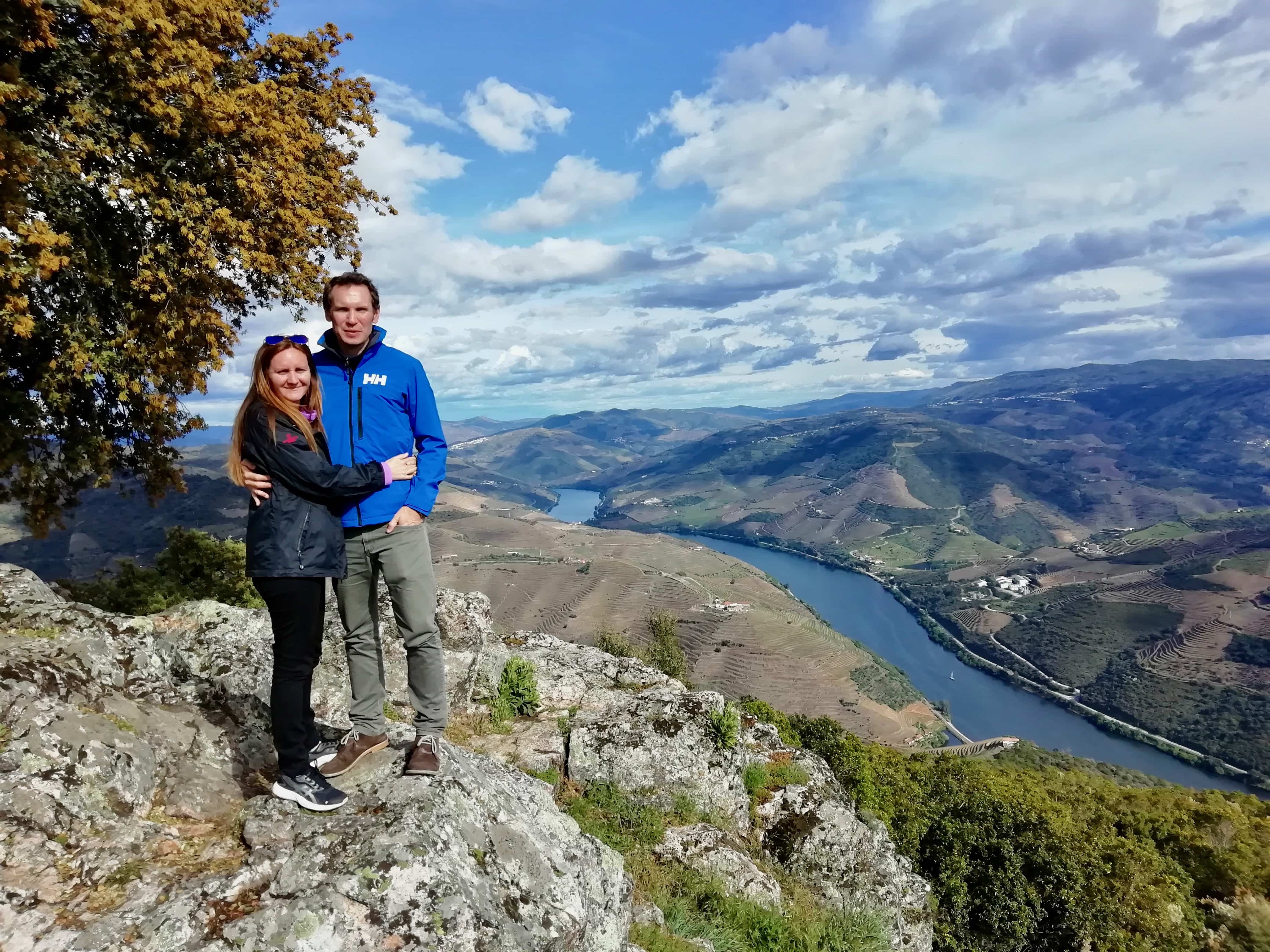 Visiting from Porto
Visiting from Porto
Most people explore the Douro wine region from Porto, a city we fell in love with during a month-long stay in nearby Espinho back in 2017. After a five-hour drive we arrived to cloudless skies and golden sunshine that highlighted the colourful buildings lining the Ribera. From our Airbnb on the southern side of the Douro River, we could walk straight onto the steel skeleton of the Dom Luis I Bridge for the best views over the city.
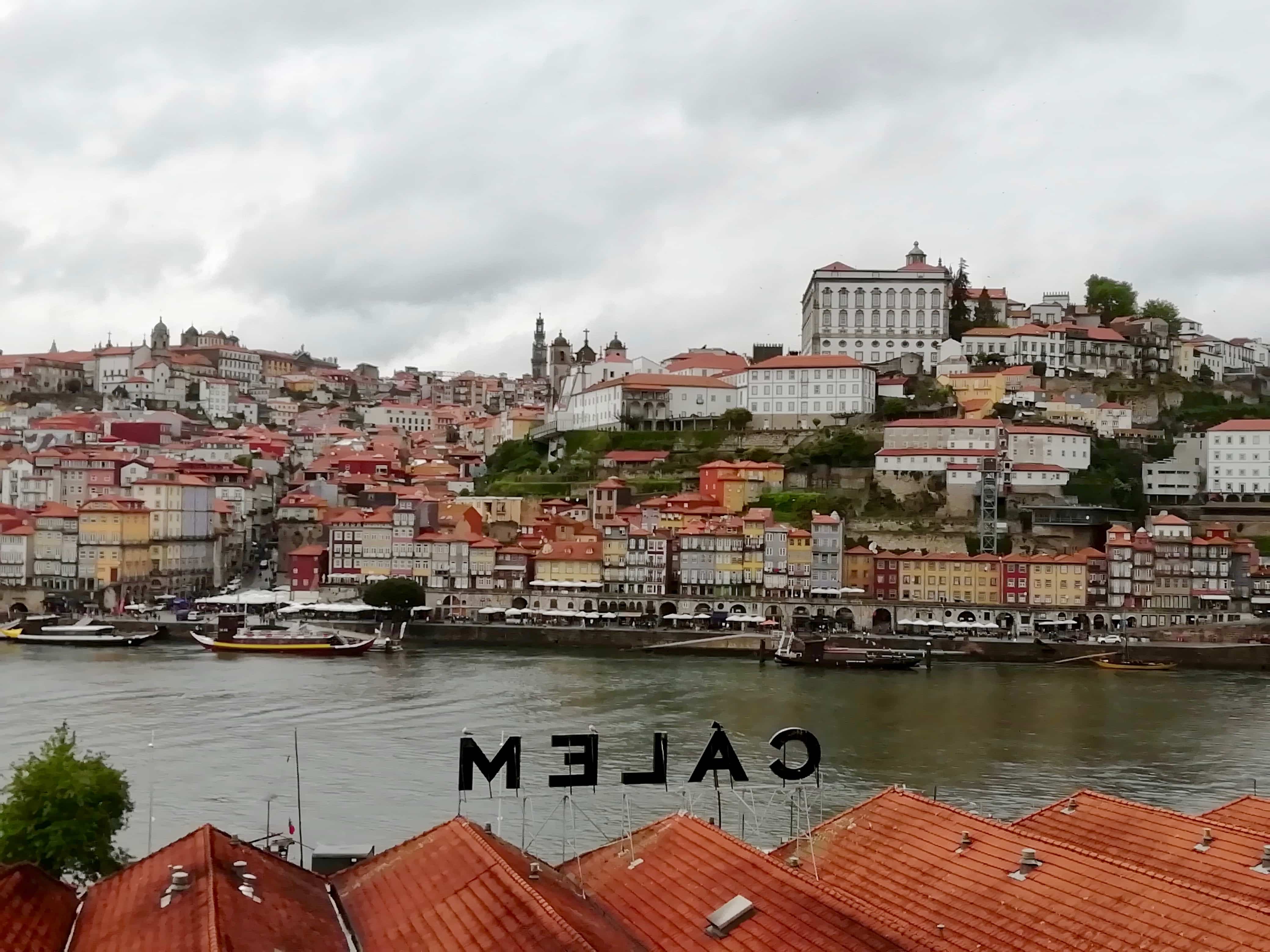
Porto’s steep cobbled streets are best explored by ambling aimlessly and that’s exactly what we did. We ate sumptuous vegan buffets at our favourite Porto restaurant, Da Terra, popped into tile-covered churches and wandered by the riverside. It was great just to be back in a bustling hub – I miss city life. There was also time to meet up with our friends Patti and Abi who were about to start their Portuguese Camino and drive down to see the Capela do Senhor da Pedra, a seaside church.
Exploring the Douro river valley by boat and train
Many people embark on a Douro Valley river cruise from Porto. These range in length from day trips to week-long excursions that stretch right into Spain. We saw plenty of cruise ships during our Douro Valley trip as well as smaller boats combining sailing trips with stays in hotels. Most boat tours include stops in the main towns like Pinhão, as well as at vineyards for Douro Valley wine tours and tastings.
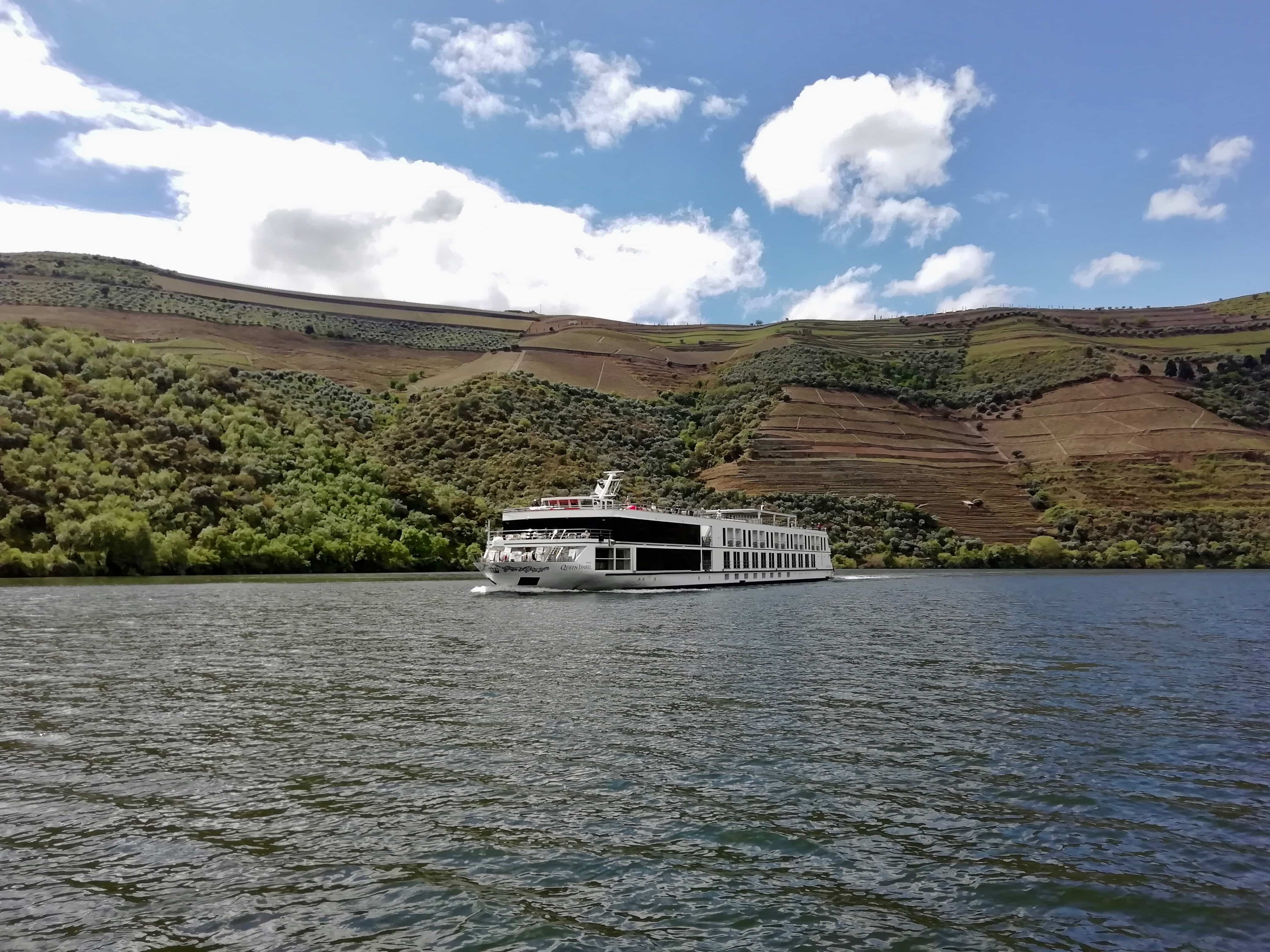
Another option is to take a shorter boat journey in the Douro Valley. We took an hour-long trip on a traditional Rabelo boat from Pinhão, which lies at the heart of the valley. Floating down the river surrounded by patch-work, terraced hills gave us a completely different perspective from driving the Douro Valley. Boat trips leave from the promenade in Pinhão roughly every hour and cost between $10 and $20. We booked our trip on the spot and it cost $12 per person.
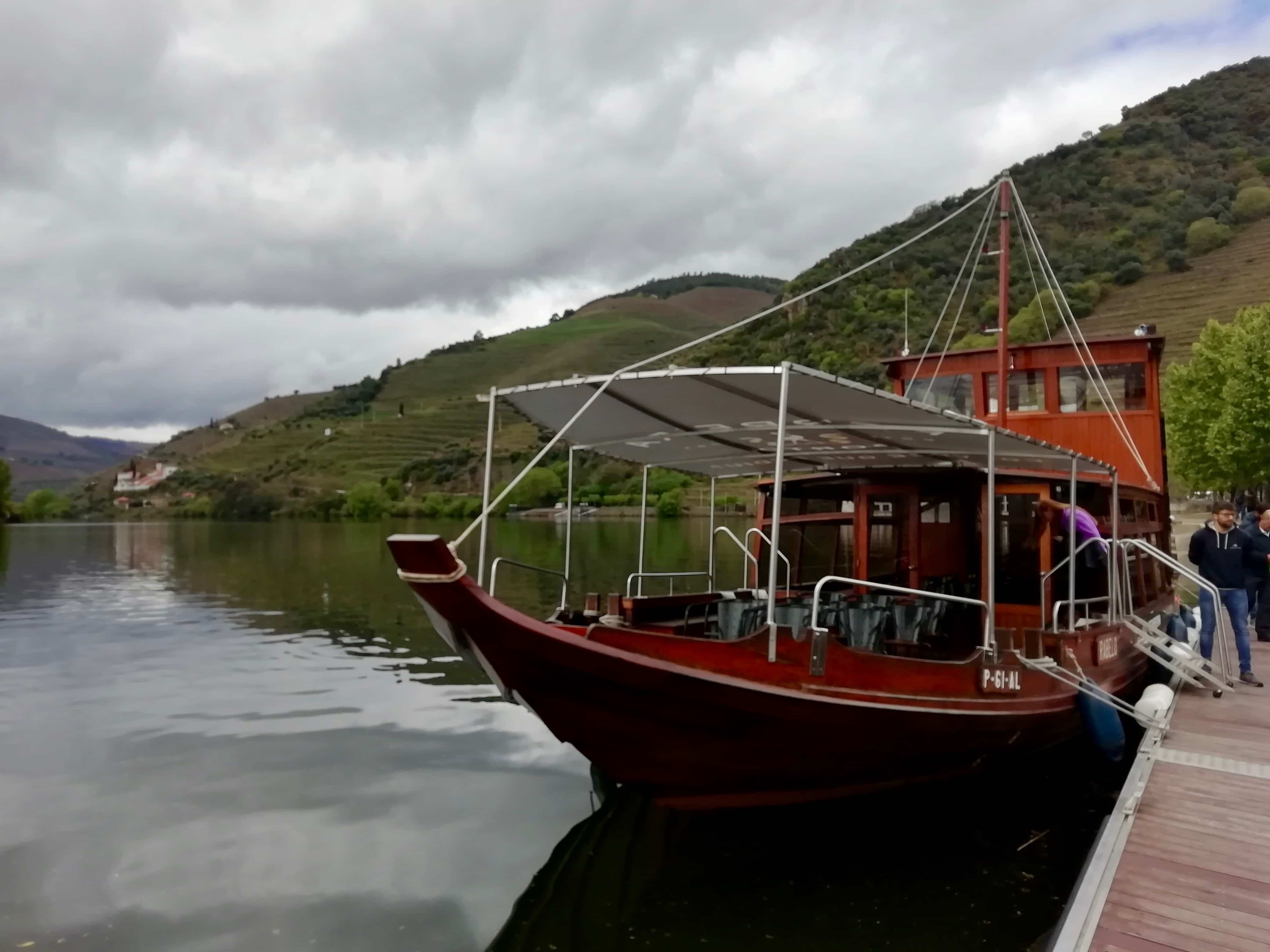
While sailing along the Douro River, we saw the Linha do Douro train in action, winding alongside the river high into the Alto Douro. This scenic train journey leaves from Porto and stops in Peso da Regia, Pinhão and the village of Pocinho, crossing 30 bridges and passing through the Douro gorge. Trains leave from São Bento station in Porto and it takes less than four hours to reach Pocinho, the end of the line, costing $13.30. The stretch between Pinhão and Pocinho is considered the most beautiful. Many people take a Douro Valley day trip, travelling by boat from Porto and returning by train.
Driving the Douro Valley from Porto
We always prefer to explore independently rather than take tours, so we opted for driving the Douro Valley. This was a great decision as we were able to keep our trip flexible, stopping off en-route at viewpoints. We followed the N108 from Porto, which runs along the north bank of the Douro River until Eja, where we crossed over and followed the N222, which is considered one of the best drives in Portugal.
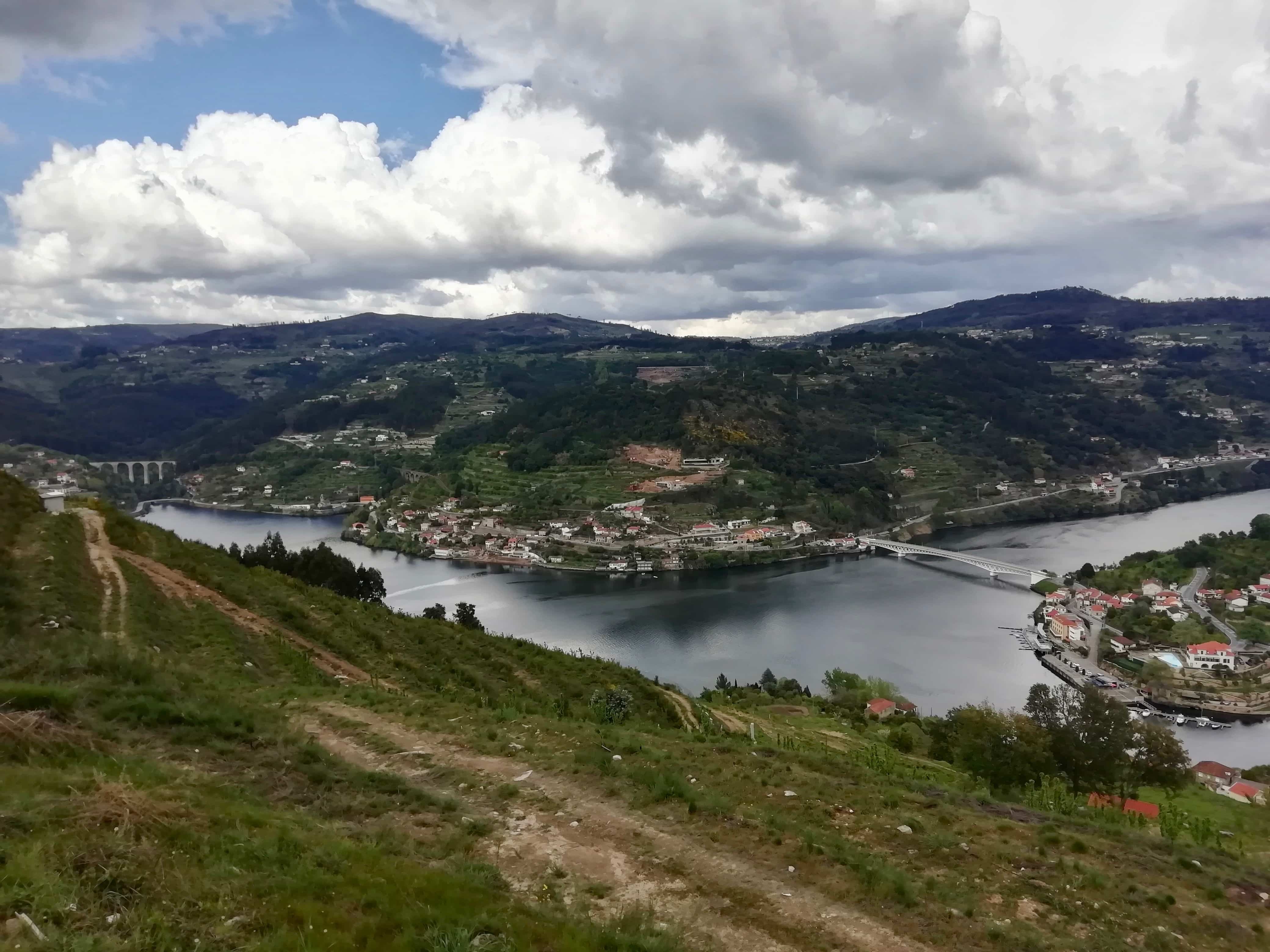
The first section isn’t so pretty and veers in from the river through countryside. After an hour, we made a quick stop to meet up with Andrew’s parents, who were visiting from the UK. From there, the road gets increasingly steep, with windy curves and perilous drop-offs high above the sparkling river. Along the way we were surrounded by rural scenery and tiny villages and stopped at random, deserted viewpoints.
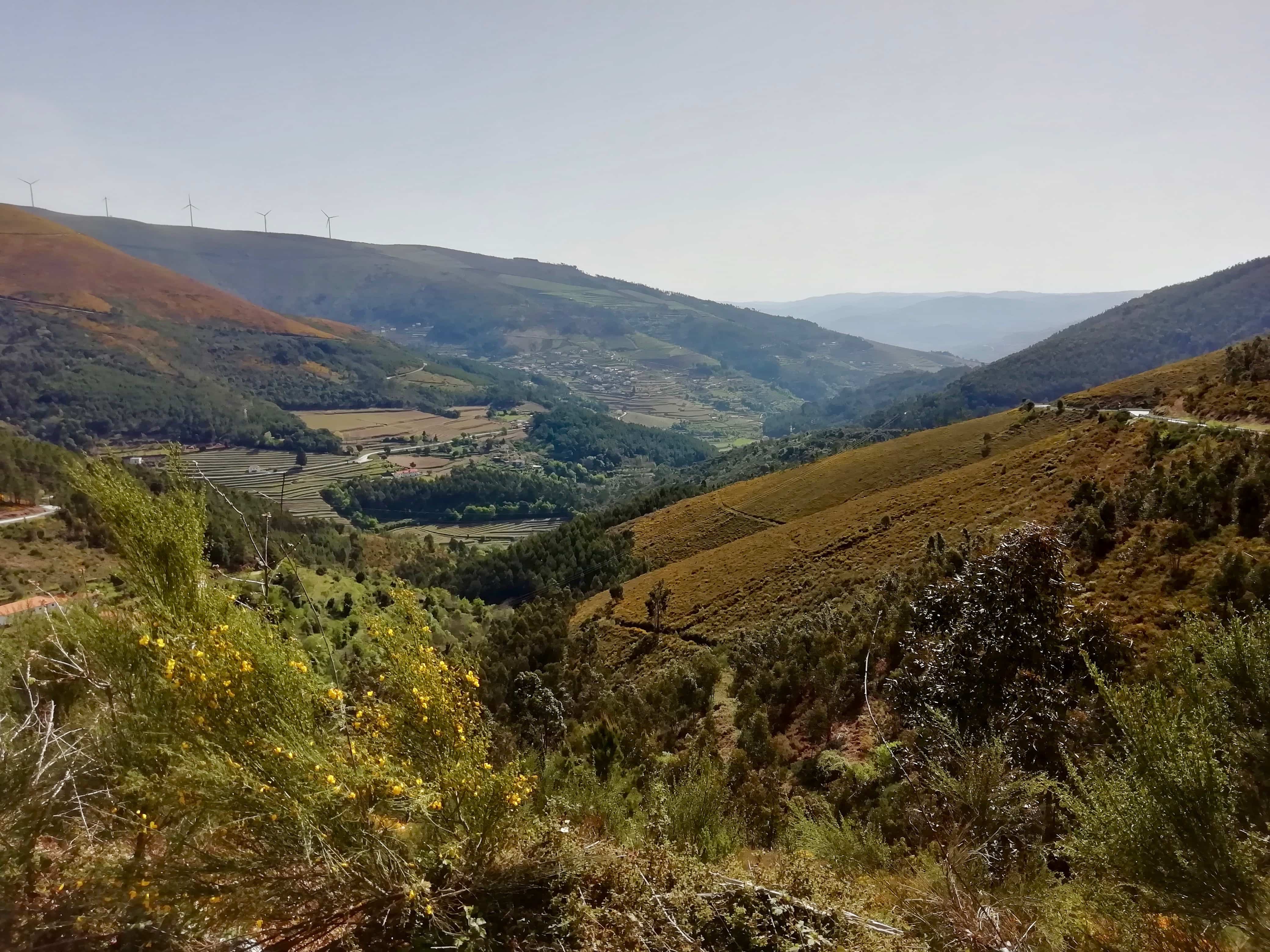
Although Google Maps says the journey takes less than three hours from Porto, the winding nature of the roads and stop-offs meant we didn’t reach our base in Peso da Régua for a further four hours. After a quick pit-stop at our hotel, we drove on to have dinner with Andrew’s parents who were staying slightly further along in Folgosa.
The most scenic stretch of the N222
The next day, we tackled the most scenic stretch of the N222, the 25km between Peso da Régua and Pinhão. This section clings to the river, surrounded by fancy vineyards and fields of grapes and olives, terraced hills stretching up to meet the sky. Pinhão is the main hub in the Douro Valley, a traditional port-producing town with a pretty riverside promenade which was the launching point for our short boat trip.
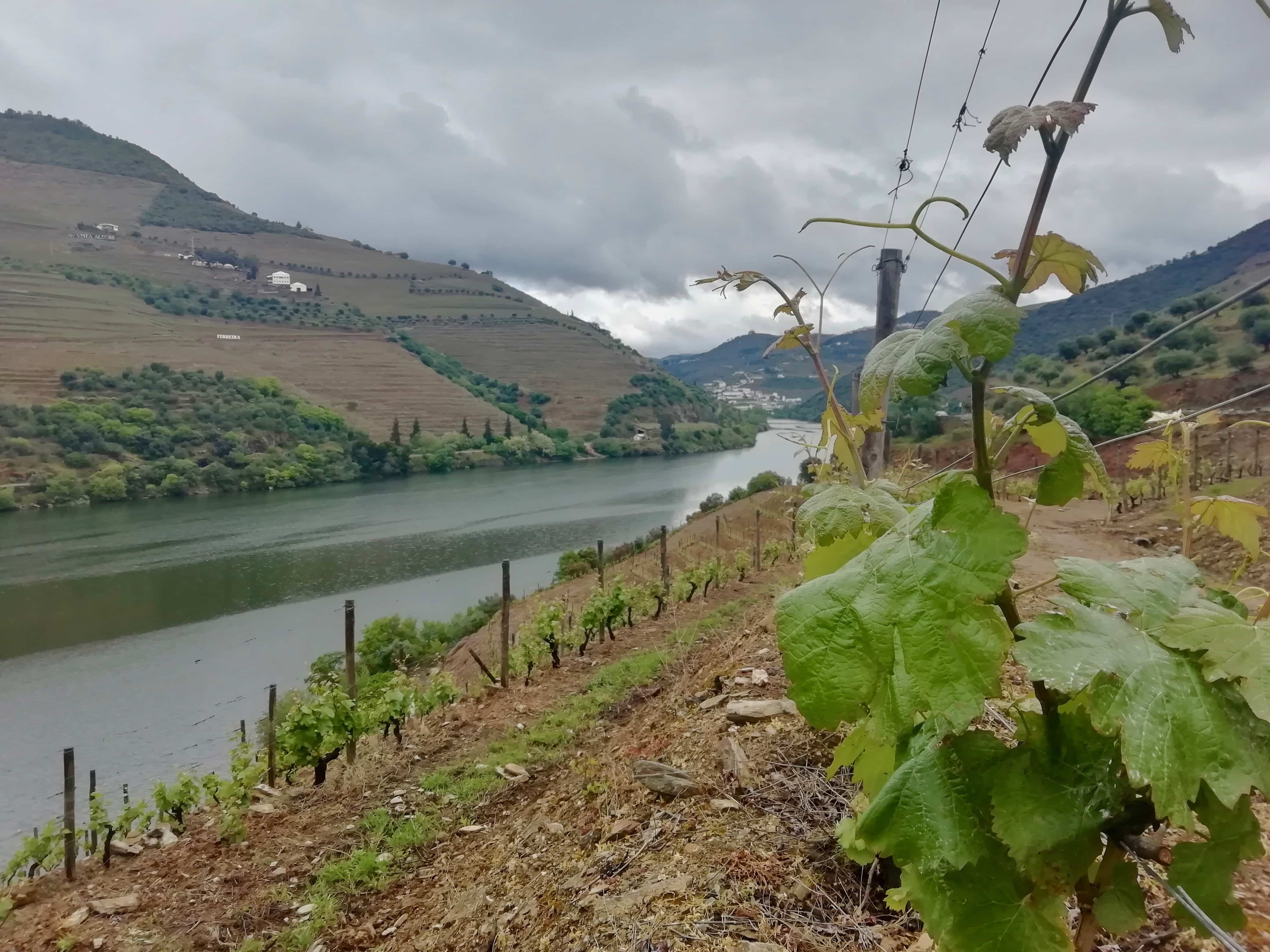
If you’re driving the Douro Valley, don’t miss the Casal de Loivos miradouro which lies 7km above Pinhão. The streets are narrow and can be difficult to negotiate, but the high vantage point offers sweeping views over the valley’s rolling hills, with the river trailing off into the horizon. We had a quick wander along Pinhão’s cobbled streets, stopping at the train station decorated with traditional Portuguese azulejos, then had lunch overlooking the river.
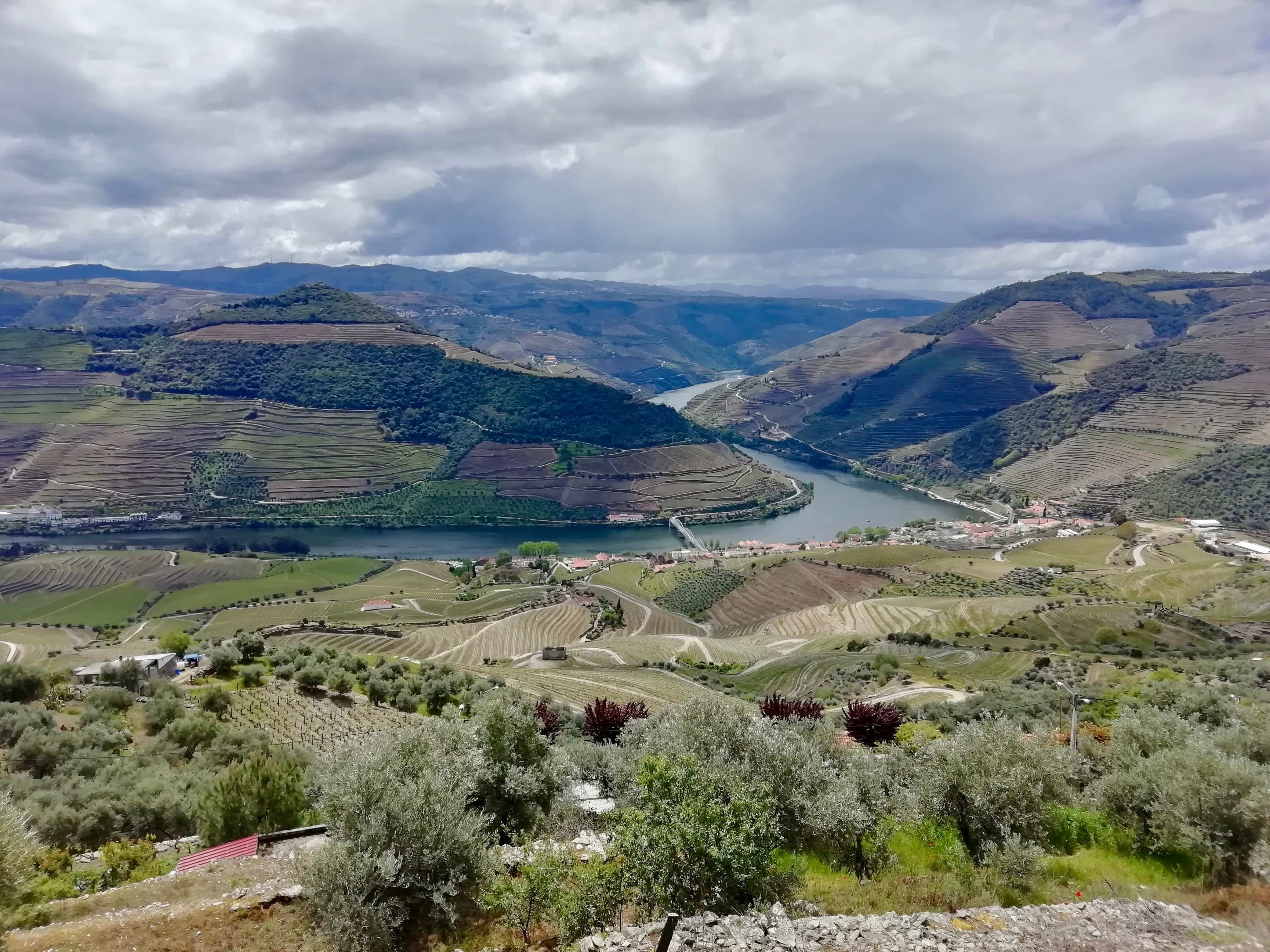
From Pinhão, it’s possible to drive further to São João Da Pesqueira and small villages like Favaios and Salzedas, but with limited time, we headed back along the N222 towards Régua. It’s worth crossing the river at the hydro dam and climbing high into the hills to reach the Miradouro de Sao Leonardo viewpoint. This provided the most stunning views of the Douro Valley, complete with a rustic Portuguese church.
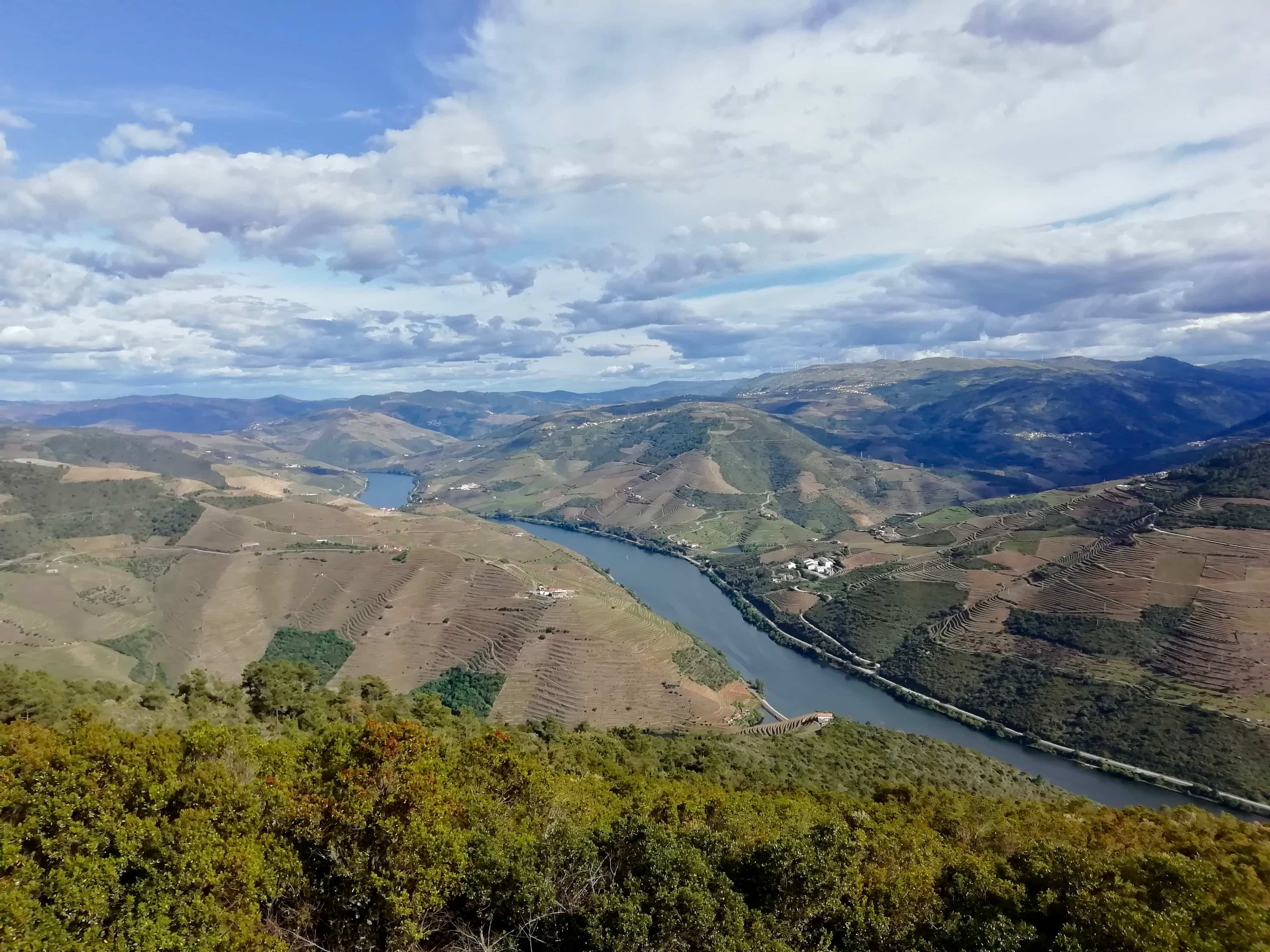
We spent our final evening in the Douro Valley in Régua. Although the industrial town isn’t particularly attractive, it does have a leafy waterfront to walk along, as well as the largest concentration of restaurants in the area. There are multiple tasting rooms and nearby wineries, such as famous Sandeman, plus the Museu do Douro which lies on the riverfront avenue and tells the story of the area’s wine history.
Where to stay in the Douro Valley
Looking for the best places to stay in the Douro Valley? Peso da Régua and Pinhão make great bases to explore the area. The valley boasts many fancy hotels in grand vineyards, such as the expensive Six Senses Douro Valley and Delfim Douro. If you have a more modest budget, like us, there are plenty of cheaper guesthouses and hotels in the valley. We use Booking.com, which is where we found our Douro Valley hotel, and Agoda to research accommodation, check out some of the options here.
Booking.com
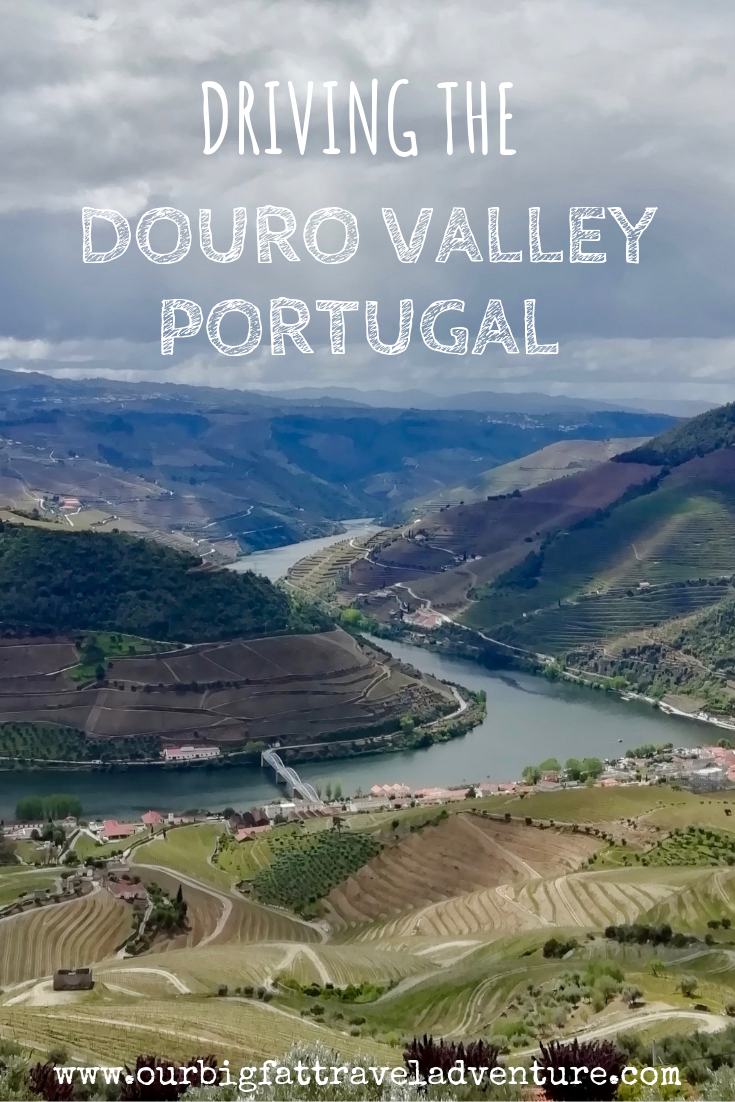





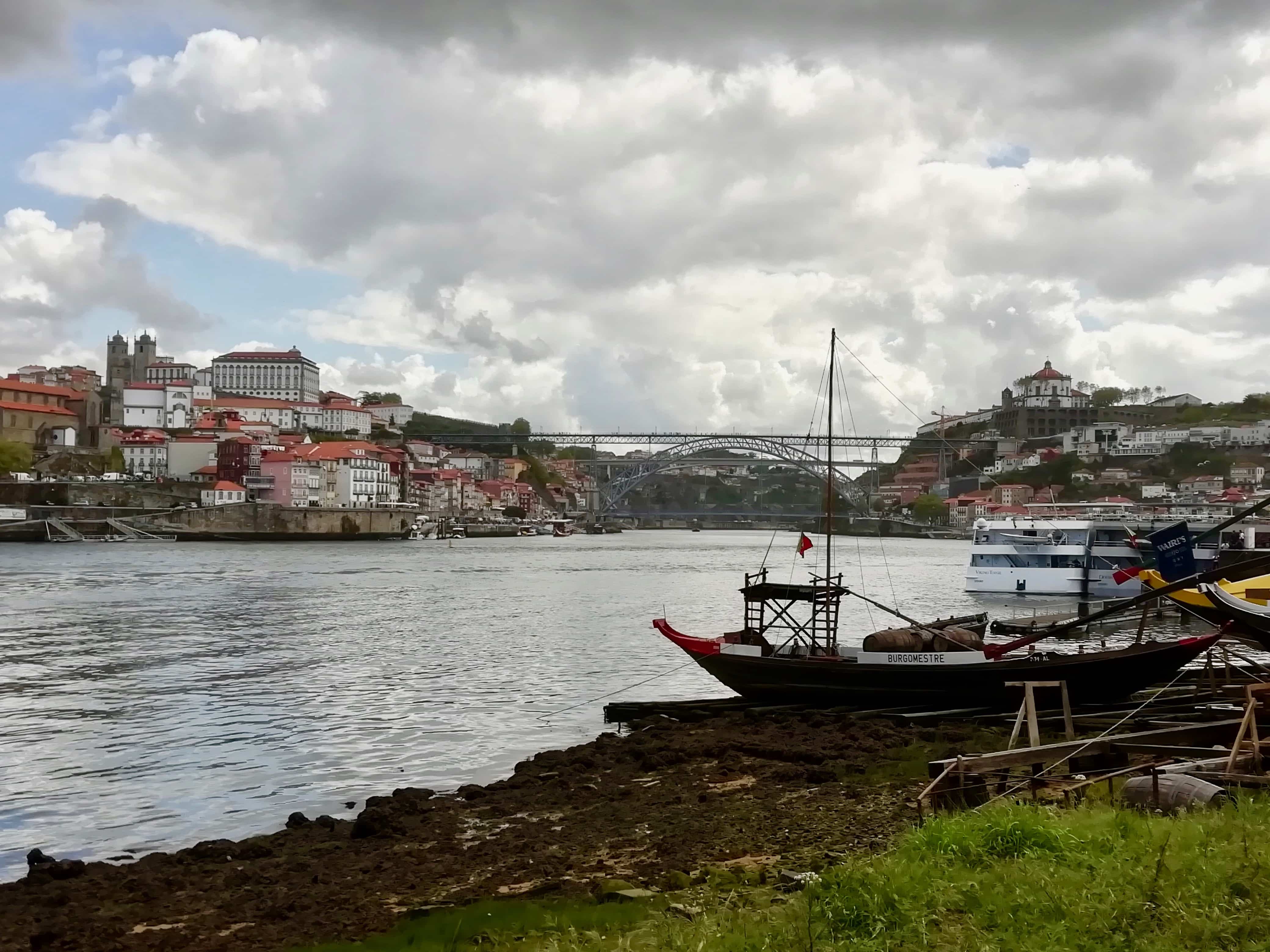
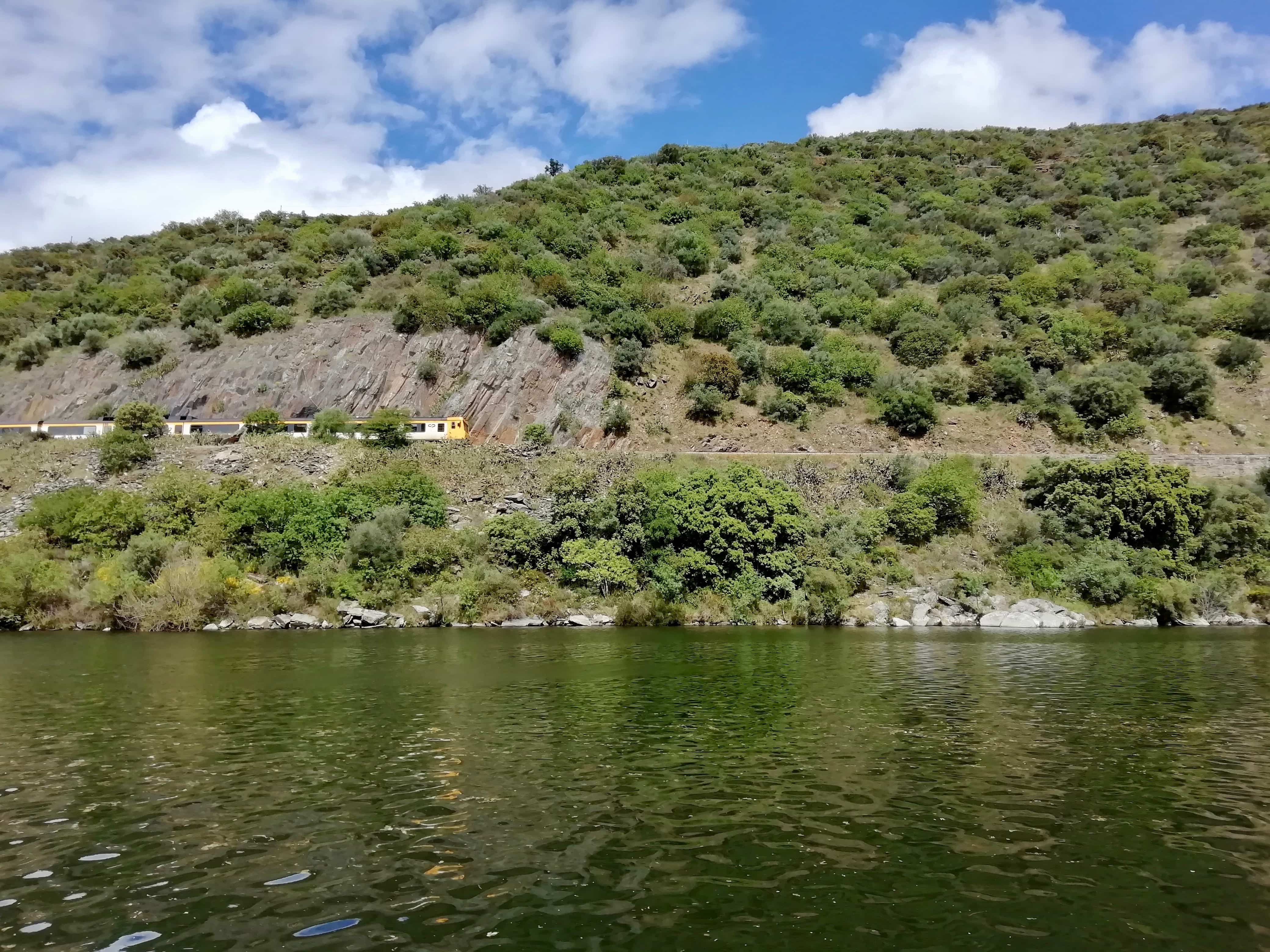
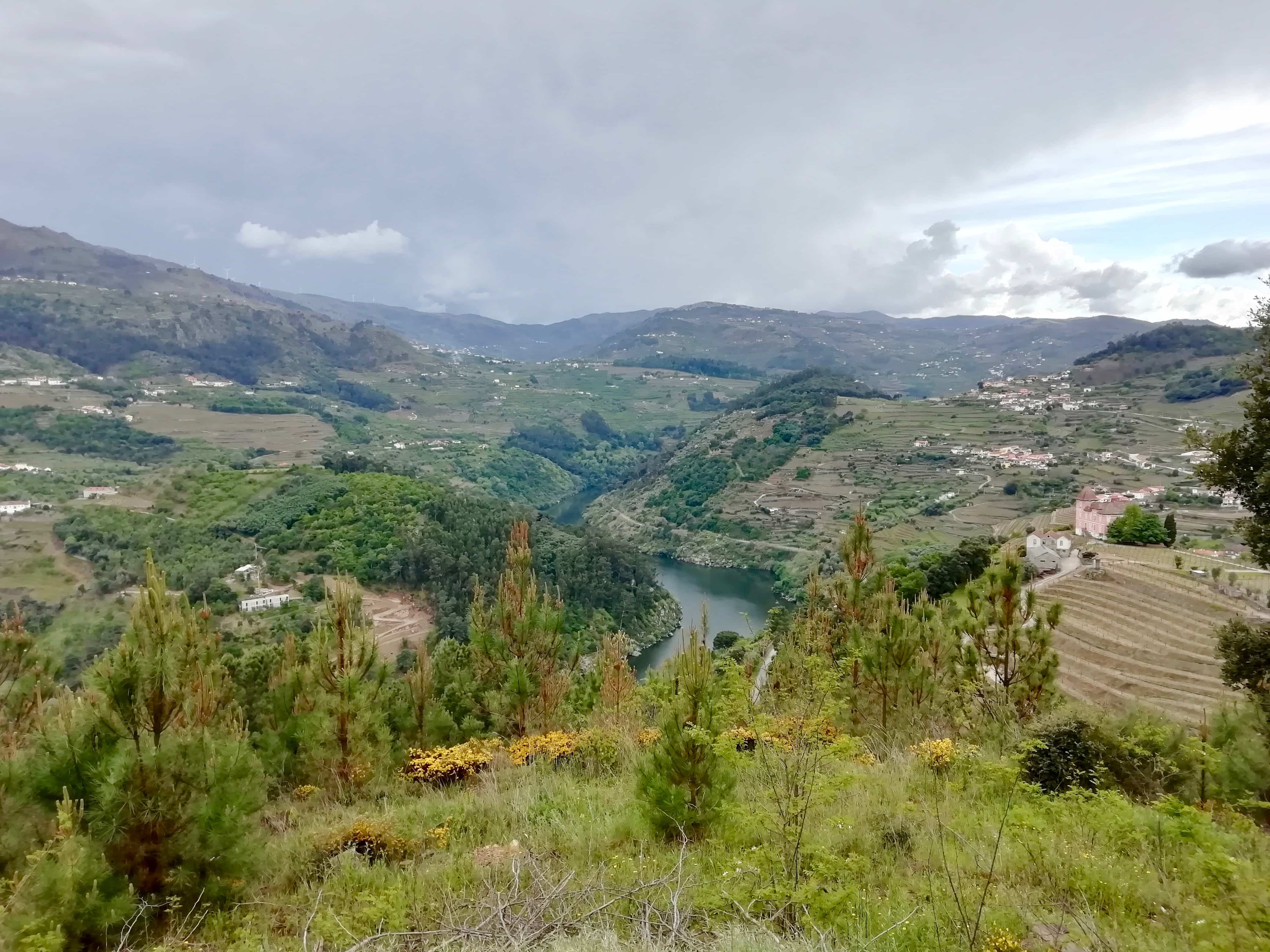
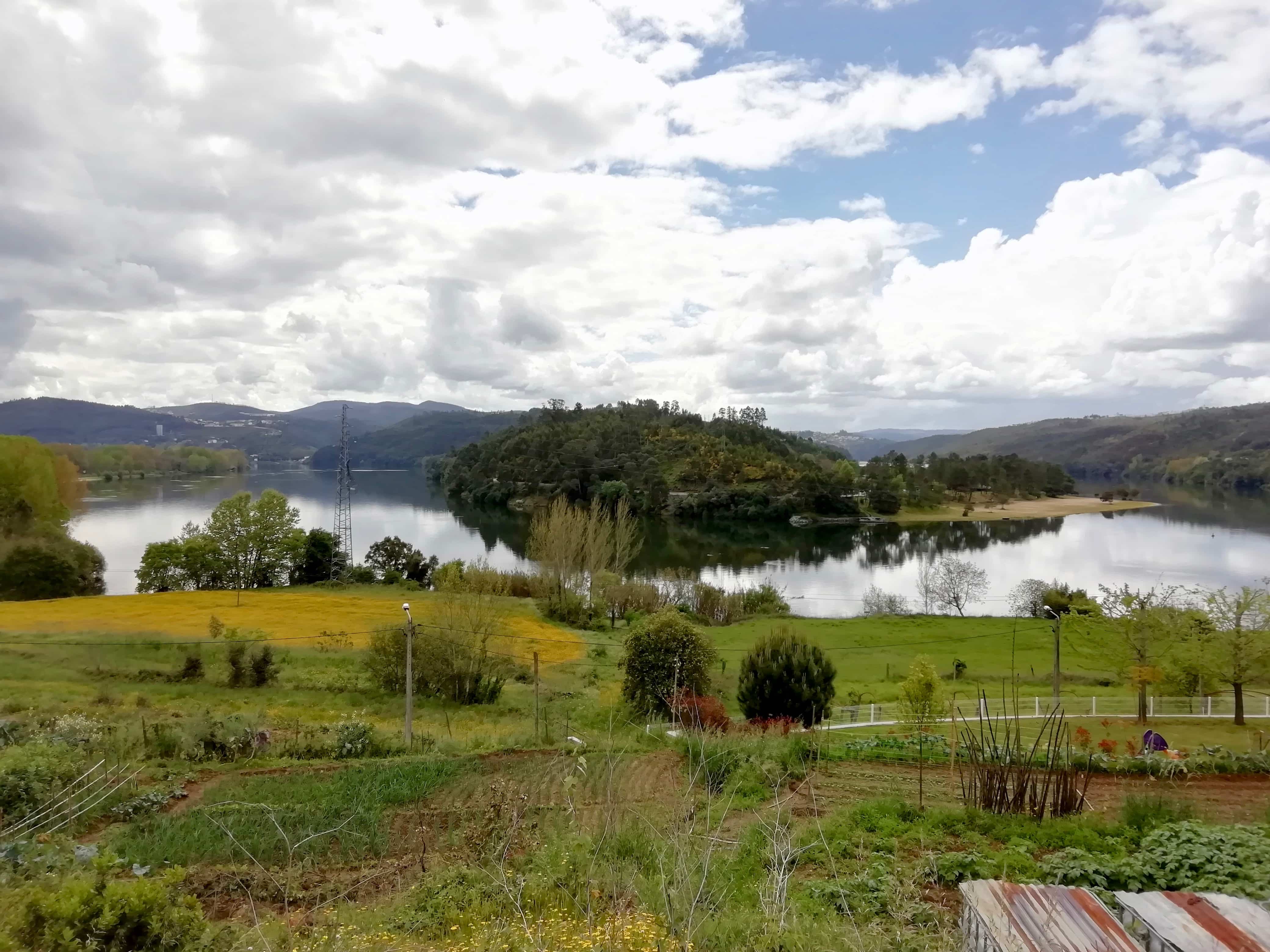
Gilda Baxter
Posted at 16:08h, 17 MayAmy, sounds like you had a great road trip on the Douro Valley. Your photos are gorgeous. I remember well the windy and narrow roads that we had to squeeze through with our large motorhome. It is certainly a very scenic drive. You hotel costs were very reasonable in Peso da Regua, although not the prettiest of towns we actually really enjoyed it there. Great post and brought back so many lovely memories 🙂
Amy
Posted at 11:35h, 24 MayHi Gilda, I bet it was a bit scary navigating those roads in your motorhome! Worth it for the views though 🙂 Yes, we thought Regua was a decent base too for our budget. Hope you have a great drive back across Europe.
Patti Maghamfar
Posted at 21:18h, 17 MayAs you know we’re huge fans of all things Portugal! It was wonderful to sit and chat with the two of you for 4 hours! What a great visit. I can’t believe how many times our paths have crossed. Hopefully, we’ll gather again sooner than later. Thanks for the shout out to our Camino Portuguese. It was a great walk (so much rain) and infinitely easier than our Camino Francis.
Amy
Posted at 11:34h, 24 MayIt was great to see you guys too, hopefully we can repeat that soon either in Europe or the US. Congrats on completing the camino despite the rainy weather, some of our pics from the Douro look a bit glum from the dark skies 🙂